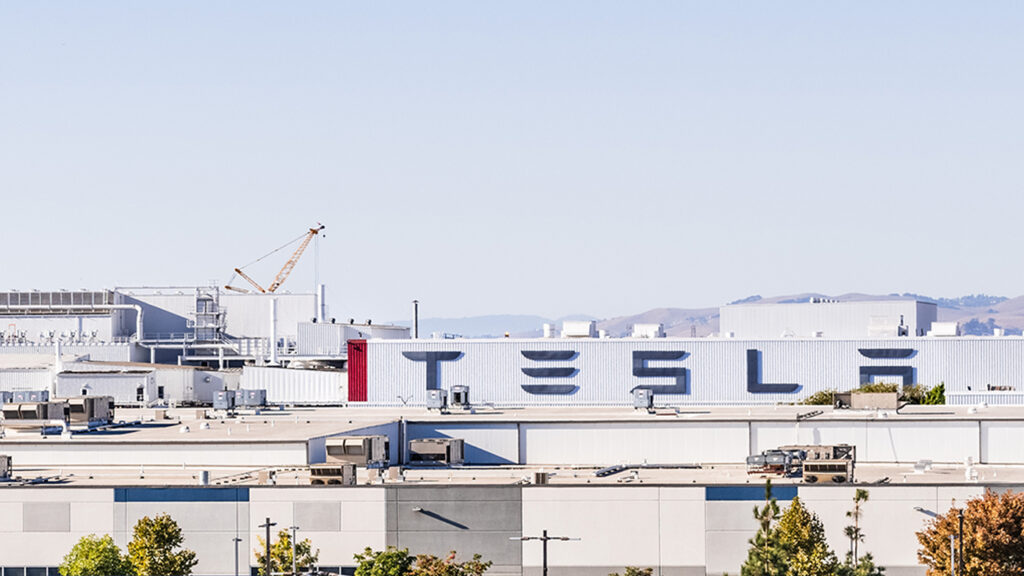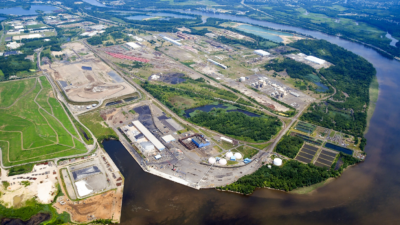Photo by Sundry Photography – stock.adobe.com
In recent years, a remarkable shift has been observed in the global manufacturing landscape as companies increasingly consider reshoring their operations back to the United States. This strategic move has been driven by several factors, including rising labor costs in overseas markets, advancements in automation technology, and a renewed focus on supply chain resilience. In this blog post, we delve into two emerging U.S. markets that have caught the attention of industry leaders and investors alike: Austin, Texas, and Charlotte, North Carolina. Both cities offer a compelling combination of robust infrastructure, skilled labor pools, and favorable business environments that make them ideal destinations for reshoring manufacturing.
 Stephanie Rodriguez
Stephanie Rodriguez
“Both cities (Austin & Charlotte) offer a compelling combination of robust infrastructure, skilled labor pools, and favorable business environments that make them ideal destinations for reshoring manufacturing.”
Austin: A Manufacturing Powerhouse
The Austin industrial sector remains one of the hottest emerging markets in the country, driven by a robust manufacturing sector and the continuation of a rapidly growing population. One key driver of the industrial demand and population growth is the city’s manufacturing sector, where contracts related to Tesla’s new “GigaTexas” automotive manufacturing facility and Samsung’s new semiconductor factory are abundant. Despite the Austin market not seeing a massive influx of true reshoring operations, they have a strong manufacturing base there that is growing exponentially, according to Travis Hicks, a Senior Vice President with Colliers | Austin. Austin’s manufacturing community is driven by semiconductor, computer electronics, biotech, food & beverage, and now automotive thanks to Tesla.
The Tesla Gigafactory, a sprawling four million square foot facility covering 10 million square feet of factory floor, is actively manufacturing Tesla electric vehicles and batteries. Located in southeast Austin, near the Austin Bergstrom International Airport, the Gigafactory produces the Model Y and is set to commence volume production of the Cybertruck. As a result of Tesla’s presence, numerous suppliers and manufacturers have set up shop in the greater Austin MSA, occupying approximately 1.8 million square feet of industrial space. Tesla themselves recently leased approximately 962,000 square feet, occupying three buildings of a new five-building industrial park. The region has experienced a surge in demand for industrial facilities to support these operations, with additional Tesla-related lease and purchase requirements actively exploring the market.
Another major development in Austin’s manufacturing landscape came from Samsung, which announced plans to build a $17 billion semiconductor chip fabrication plant in Taylor, a town northeast of downtown Austin. The facility, spanning six million square feet on a 1,200-acre site, is expected to be completed in 2024 and will create significant opportunities for supporting companies and suppliers in the region.
Charlotte: Powering Energy Services Manufacturing
During the first quarter of 2023, the Charlotte industrial market experienced a boost in strong fundamentals due to continued occupier demand and ongoing population growth. Grant Miller, a Senior Vice President at Colliers | Charlotte, noted a shift in project types compared to twelve months prior. While there was previously a focus on distribution and warehouse projects, the tide has now turned, with an increasing demand from a manufacturing perspective. Miller explained, “It used to be real estate, labor, and electricity. The search criteria now prioritizes electricity, labor, and then real estate.”
One of Colliers’ Charlotte-based clients, a Canadian-based energy services provider manufacturer, sought a suitable space for heavy manufacturing operations. Motivated by government subsidies from the Inflation Reduction Act (IRA), the company aimed to locate in the U.S. and required speed to market due to the specific IRA timeline. Grant, along with other members of our Charlotte industrial team, initiated a multi-state site selection search in the Southeast U.S., first prioritizing sites with labor availability, a requirement that was then superseded by the need for sites with large electrical capacity.
Recognizing the urgency, our team explored spec space options that could accommodate the tenant’s needs, including electrical capacity, large water requirements, and sewer capacity. After a comprehensive search, they successfully finalized the deal, and the project took approximately 24 months to complete. This example showcases Charlotte’s ability to support manufacturers with specific requirements and expedite their entry into the U.S. market.
Forging a New Era
Austin and Charlotte stand out as shining examples of emerging U.S. markets for reshoring manufacturing. Austin’s vibrant manufacturing community, propelled by major players like Tesla and Samsung, offers a diverse range of opportunities across various industries. Charlotte’s responsiveness to specific manufacturing needs, as demonstrated by our client example, highlights the city’s ability to support companies seeking a quick market entry. As the United States continues to witness the resurgence of reshoring, these two cities emerge as beacons of opportunity, embodying the spirit of innovation, skilled labor, and supportive business environments.



 Craig Hurvitz
Craig Hurvitz
 Lauren Pace
Lauren Pace Ronna Larsen
Ronna Larsen
 Tom Golarz
Tom Golarz Michael Golarz
Michael Golarz